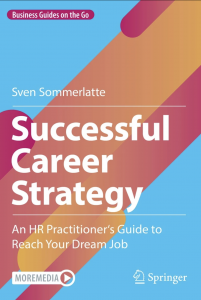In this article I describe the benefits of setting up a personal, outline how it works, what topics it should cover and how to select the board members.
It is important to actively drive your career development. But that should not be done alone. You should get the support from people who know you, who know your function and who know your industry. Your personal board will help you review your career strategy, and it will be there to answer questions on how to best steer your professional development.
The board will provide advice on important career decisions, and you will be able to draw on the board members’ experience and expertise. Such a career advisory board can become a major success factor for your professional development. Don’t wait to set it up!
Why to set up your personal career advisory board?
CEOs of large corporations have advisory boards to help them steer the development of their organization. Everyone would agree that this support is needed, because different perspectives are required to make the right strategic decisions for a company. The same is true concerning our career development.
Having the possibility to draw on the advice of a career advisory board is important for us when we are confronted to certain critical career decisions. In these situations it is very helpful to be able to have sparring partners whom we can really trust. The possibility to get support from people who know us and who know what we want to achieve can be a real success factor in our professional journey.
How to select the board members?
Selecting the right board members is crucially important to make this personal career advisory board useful for you.
You should have one person who really knows you very well. This could be a person who has been able to observe you over the past couple of years, who knows your personality and your profile, who knows your strengths and your areas for development. With other words, someone who has a deep understanding of who you are.
Furthermore, you should select one or two board members who have relevant industry experience. Either from the sector that you are currently working in, or a sector that you are interested in and where opportunities may exist for you in the future.
Finally, you should have people who understand your specific role or your function. This could be a person who had a similar responsibility in the past. It can also be someone who currently holds a role similar to yours, but in a different company. In that case you have a peer relationship, which can also be very useful for your career management.
What is a personal career advisory board?
You will agree with the board members when you meet. Usually that should be one or two times per year. You can also agree on more frequent meetings, especially if you are in a situation where you must make important decisions.
You should agree with your board members what schedule works best for them. You could for example agree to meet in the evenings, because that is when they are available. In other cases, it might be more suitable to meet over the weekend, etc. These aspects need to be clarified upfront.
It is also your responsibility to prepare those board meetings to ensure that they are fruitful for you.
What topics should be covered in the board meetings?
When the board meets for the first time, you should share your career strategy. I would recommend starting each subsequent board meeting with a review of that career strategy. You should update the board members on where you stand in the implementation of your strategy and if there are any changes to that plan.
Secondly, I would recommend reviewing the past couple of months since you have last met with your board.
- What have been your achievements?
- What difficulties or challenges did you encounter and what were the learnings you could draw from those?
- How have you been able to further expand your experience base?
You should of course update the board on thoughts or perspectives you may have about your next career step, especially if certain concrete opportunities have come up inside or outside of your company.
You may for example have had discussions with headhunters who have contacted you in view of job opportunities. These are topics that the board should be aware of.
Finally, you should also make sure that there is time for questions and discussion. In particular, you should leave time for the board members to challenge you on certain aspects or ask the right coaching questions in order to stimulate your thinking.
That agenda should allow the board to help you best steer your career development in view of your ultimate career aspiration.
I hope you are ready to set up your personal career advisory board NOW.
More information in my book:
Sven Sommerlatte : Successful Career Strategy – An HR Practitioner’s Guide to Reach Your Dream Job (Springer, June 2023). ISBN: 978-3-662-66790-3
